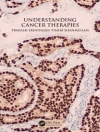The possibility of treating cancer, a disease defined by genetic defects, by introducing genes targeting these very alterations has led to an immense interest in gene therapy for cancer. Although incremental successes have been realized, enthusiasm for gene therapy has declined due to an increasing number of obstacles. These obstacles include vector systems that do not reach systemic metastases, therapeutic genes with redundant mec- nisms allowing for cellular resistance, and toxicities in clinical trials leading to premature closure of these studies. Different tactics to overcome or circumvent these obstacles have catalyzed the development of a wide range of gene therapy approaches. Thus far, almost two-thirds of gene therapy trials have focused on cancer. This reflects the concept that gene therapy approaches for the treatment of cancer do not necessarily require long-term expression of the gene as is necessary for the treatment of primary genetic defects like hemophilia or juvenile diabetes. Unlike the treatment of genetic defects, where expr- sion of the corrected gene needs to be strong, permanent and, sometimes regulated, tactics to treat tumors can be based on temporary and locally limited effects. In addition, cancer cells have different properties than normal cells and this allows for targeting gene therapy to specific cells, a major advantage over current antitumor therapies, which are also toxic to normal cells and tissues.
Tabela de Conteúdo
Vectors.- Adenovector-Mediated Cancer Gene Therapy.- Efficacy, Toxicity, and Immunogenicity of Adenoviral Vectors.- Lentiviral and Retroviral Vector Systems.- Vaccinia and Pox-Virus.- Herpes Simplex Virus as a Therapy for Cancer.- Alphavirus Vectors for Gene Therapy Applications.- Vesicular Stomatitis Virus and RNA Viruses as Gene Therapy Vectors.- Parvovirus Vectors.- Nonviral Vector Systems.- Gene Therapy Approaches.- Oncogenes, Tumor Suppressor Genes and Apoptosis-Inducing Genes Utilized in Cancer Gene Therapy.- Gene Silencing Therapy Against Cancer.- Tumor Targeting-Retargeted Adenovirus.- Oncolytic Herpes Simplex for Gene Therapy in Preclinical and Clinical Trials.- Cytokine Gene Therapy for Genitourinary Cancer.- Combination of Gene Therapy with Radiation.- Gene Transfer for Chemoprotection and Enrichment of Hematopoietic Stem Cells.- Nonviral Genetic Vaccines for Cancer.- Gene Therapy Targeted at Angiogenesis and Lymphangiogenesis for Cancer Treatment.- Tumor-Specific Replicating Adenoviruses.- Clinical Applications.- Problems, Side Effects, and Disappointments in Clinical Cancer Gene Therapy.- Trials and Tribulations in Developing Clinical Trials of Gene Therapy.- Phase I Clinical Experience with Intravenous Administration of PV701, an Oncolytic Virus.- MDA-7/IL-24 as a Multi-Modality Therapy for Cancer.- Development of Therapeutic Genes for Breast Cancer Treatment.- Steps in a Translational Cancer Gene Therapy Trial.












